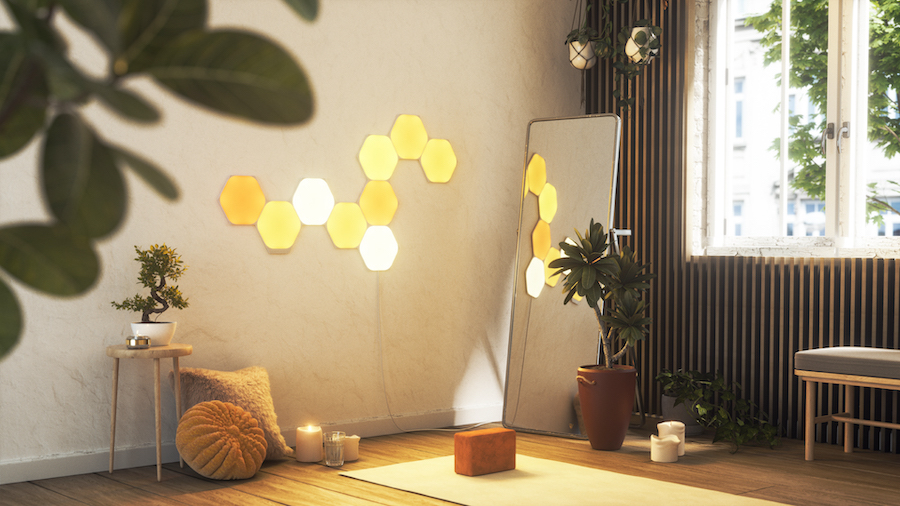Discussing the smart things business with Nanoleaf’s CEO Stacey on IoT
This year feels like a difficult year for the smart home. On the one hand, there’s the promise that the Matter protocol will help solve stubborn interoperability problems. On the other hand, we are seeing a wave of companies closing their doors as they assess the post-pandemic landscape.
So it seemed like a good time to talk to Gimmy Chu, the CEO of Nanoleaf, a company that makes slick, connected light panels, about the challenges and opportunities for smart devices.
First, get ready to commercialize. With the Matter protocol, Chu said, we’ll see cheap Matter-certified products flood the market. These products will have basic features as per the Matter standard, forcing existing smart home vendors to up their game or compete for market share based on cost.
The good news from a consumer perspective is that the Matter standard enshrines fundamental security, making these inexpensive devices less likely to open gaping holes in your home network. Matter also allows for local control of base devices, meaning these products will continue to work even if their parent company goes out of business.
As Chu noted, for years the smart home was built on sand and was constantly moving, while with Matter the smart home is built on rock, making these platforms more stable. That’s a positive, but he also thinks Matter isn’t the flashy tech it was designed for consumers. “This is the rock and no one cares about the rock,” he said. “They care about what is built on the rock.”
I tend to agree with him. Matter will make it easy to allow different devices to work together without worrying about what ecosystem the device is in. This will be helpful, but not as groundbreaking as when the Matter standard was announced. Especially as the big names in the smart home are moving from selling individual devices to packaging devices to services like security systems or products to monitor elderly care.
Chu cites the jump to services as a way for smart home companies to fight commercialization and also provide them with recurring revenue. As I often emphasize, many smart home companies need some form of ongoing revenue, as each connected device requires ongoing cloud and development support throughout its lifetime. Chu agreed, noting that while Nanoleaf doesn’t charge for a subscription, the company has a cloud so it can work with both Amazon and Google.
“Cloud support was necessary in a world before matter,” he said. In fact, it’s still unclear how much of the Nanoleaf functionality can go into local control if the Matter standard doesn’t support scenes and more complex lighting options. Chu said he’s trying to fight to get these more complicated options included in the standard, but he doesn’t know if it will happen.
Jerome Gackel, Eve’s CEO, made a similar statement late last year. Gackel said he hopes some of the additional features associated with Eve’s devices, such as For example, monitoring energy consumption at smart sockets should be included in the Matter standard so that consumers who buy the devices can take full advantage of them.
But even if Chu’s hopes for full Scene support don’t materialize at first, he doesn’t plan to launch any subscription plan to pay for Nanoleaf’s cloud costs. Chu said he’s aware of the pressure to look more like software companies and generate recurring revenue that many associated hardware companies receive from investors, but that’s not something he’s interested in innovative products, the company will be fine.
As for Matter Delay, Chu would like to see a well-developed standard as opposed to one that was developed quickly. But he also seems frustrated with the wait. “We’ve been waiting for Matter to launch products,” he told me.
And when asked what those products entailed, he was reticent. “We do a lot with sensors,” he said.


Comments are closed.